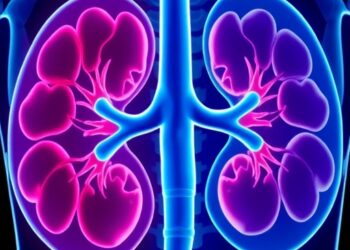hat: Researchers have identified inherited genetic variants that may predict the loss of one copy of a woman’s two X chromosomes as she ages, a phenomenon known as mosaic loss of chromosome X, or mLOX. These genetic variants may play a role in promoting abnormal blood cells (that have only a single copy of chromosome X) to multiply, which may lead to several health conditions, including cancer. The study, co-led by researchers at the National Cancer Institute, part of the National Institutes of Health, was published June 12, 2024, in Nature.
hat: Researchers have identified inherited genetic variants that may predict the loss of one copy of a woman’s two X chromosomes as she ages, a phenomenon known as mosaic loss of chromosome X, or mLOX. These genetic variants may play a role in promoting abnormal blood cells (that have only a single copy of chromosome X) to multiply, which may lead to several health conditions, including cancer. The study, co-led by researchers at the National Cancer Institute, part of the National Institutes of Health, was published June 12, 2024, in Nature.
To better understand the causes and effects of mLOX, researchers analyzed circulating white blood cells of nearly 900,000 women across eight biobanks, of whom 12% had the condition. The researchers identified 56 common genetic variants—located near genes associated with autoimmune diseases and cancer susceptibility—that influenced whether mLOX developed. In addition, rare variants in a gene known as FBXO10 were associated with a doubling in the risk of mLOX.
In women with mLOX, the investigators also identified a set of inherited genetic variants on the X chromosome that were more frequently observed on the retained X chromosome than on the one that was lost. These variants could one day be used to predict which copy of the X chromosome is retained when mLOX occurs. This is important because the copy of the X chromosome with these variants may have a growth advantage that could elevate the woman’s risk for blood cancer.
The researchers also looked for associations of mLOX with more than 1,200 diseases and confirmed previous findings of an association with increased risk of leukemia and susceptibility to infections that cause pneumonia
The scientists suggest that future research should focus on how mLOX interacts with other types of genetic variation and age-related changes to potentially alter disease risk.
Who: Mitchell Machiela, Sc.D., M.P.H., Division of Cancer Epidemiology and Genetics, National Cancer Institute
The Study: “Population analyses of mosaic X chromosome loss identify genetic drivers and widespread signatures of cellular selection” appears June 12, 2024, in Nature.
Journal
Nature
Article Title
Population analyses of mosaic X chromosome loss identify genetic drivers and widespread signatures of cellular selection
Article Publication Date
12-Jun-2024




